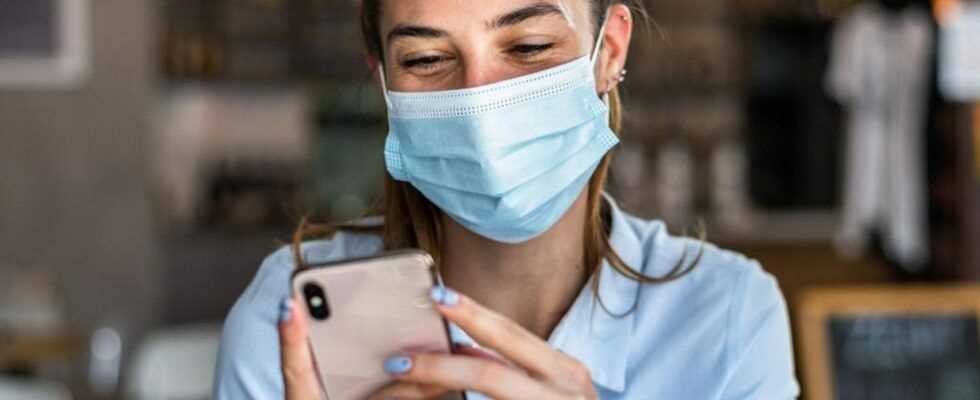Coronavirus
With the anti-corona app "Luca" for more freedom?
"Luca" could, for example, provide more freedom when it comes to going to a restaurant
© Andrej Hicil / Shutterstock.com
"Luca" has recently caused a stir. But how does the app that is supposed to help in the fight against the coronavirus work?
Who or what is this "Luca" that so many people are talking about? Behind this name is an app and an associated system that could help to cope better with the corona pandemic and give people more freedom again – especially when it comes to culture, meeting friends or going to a restaurant.
The software, which is available for iOS, Android and as a web app, is intended to enable seamless and, above all, fast contact tracking during the pandemic. The health authorities are directly involved and users can be informed more quickly if they were exposed to a risk of infection.
At the request of the news agency spot on news, a spokesman who oversees communication around "Luca" explains it like this: "Luca is a whole system, not just an app. The connection with the health authorities and the feedback channel for the users are important to us . The health department can use a contact history to inform all people who have been in the same locations and the users immediately receive a message on their mobile phones. "
Why is everyone talking about "Luca"?
Rapper Smudo (52), who is also involved with his colleagues from the Fantastischen Vier ("Popular"), is currently campaigning to make the application known to the broad masses. He recently appeared on "Anne Will" and spoke about the system in the talk group. In addition to the band, the Bundesdruckerei and the Hasso Plattner Institute are also involved in the initiative of the Berlin start-up neXenio.
Smudo said vividly at "Anne Will": "If there is a fire, you don't ask who invents the fire extinguisher? We have the fire extinguisher. It is ready and it can now be used." The musician's convincing performance caused a run on the app. "During 'Anne Will' alone, we sent 350,000 certification SMS messages. That shows that people are interested," explains the "Luca" spokesman. One is "really happy about the whole interest".
This interest is not only shown by the users. The offices and the federal states are also jumping up more and more. 15 regions are already on board – including Rostock, Kiel, Sylt and the Duchy of Lauenburg. And "there will be a few more quickly, as it looks right now". They are currently in contact with around 200 of the around 400 health authorities in Germany. Thuringia is therefore in an advanced planning phase, with the state governments of Saxony and Saxony-Anhalt they are currently having "deep talks" and also Baden-Württemberg and Armin Laschet (60), the Prime Minister of North Rhine-Westphalia, have expressed their interest.
But how does it all work?
"Luca" relies on three interfaces – the user or guest, a host and the health authorities. For the user, the app is actually very simple. Users can enter their data once and receive a QR code that changes every minute and is assigned to the smartphone. Guests can then check in on site, for example at concerts, in restaurants or in private meetings with friends who, as hosts, only need their smartphones. After the stay, the user is automatically checked out.
Little by little, a contact diary that includes encounters is created almost automatically. If an infection occurs, users can voluntarily send the data to the health authorities for follow-up, which in turn can inform all contacts at risk as quickly as possible. This enables a significantly higher speed on paper than if, for example, slips of paper with contact information first have to be evaluated by hand – and it relieves the health authorities. On the "Luca" website, users can check whether their own region is already connected.
"Luca" has also given some thought to data protection. According to the developers, the anonymously collected data is decentrally encrypted and all three interfaces are necessary to decrypt them again in the event of infection. The different parts for decryption are stored on servers in Germany. The data can therefore only be read out by the health department. Organizers or other people, including the team behind "Luca", have no access.
